The University of Groningen’s “Sustainability Summit Lab” develops students’ change-making skills. Here are lessons for education and beyond.
Björn Mitzinneck and Katrin Heucher are faculty in the Department of Innovation Management and Strategy at the University of Groningen
As business professors, we see students’ excitement about sustainability – but also their hesitation about what they can actually achieve. Students want careers where they can positively impact social and environmental issues, but they are not sure how to set about it. They may struggle to see how conceptual tools and frameworks will be relevant to practice, or what careers as sustainability professionals look like.
Students are often encouraged to “change companies from the inside,” but ideas of“change” and “agency” within companies can be complicated. Despite ambitious purpose commitments, companies struggle to move the needle on grand challenges like inequality or climate change1. In such a context, students can doubt their ability to realize personal sustainability aspirations and feel intimidated by the prospect.
We wanted to help our master’s students become “change agents,” able to work within organizations to have a positive impact on sustainability transitions and broad societal concerns. In our careers, we have been inspired by the many changes that insiders can make, from developing green products that conserve resources and reduce waste to making extractive industries more responsive to human rights issues through on-the-ground action.
To support master’s students in shifting the scales toward positive impacts, we have piloted the “Sustainability Summit Lab” at the University of Groningen. This is an integrative teaching approach that provides an encouraging and safe learning environment for aspiring sustainability change makers to hone essential skills.
This article shares our approach and lessons learned. We hope to inspire and invite others to the conversation on how sustainability education can empower change agents. We believe that we as educators can help students realize their potential to shape a more just and sustainable future for all.
Students Can Become Insider Change Agents
Business school educators often tell students that it’s valuable to work within a company to instigate change. Employees’ insider knowledge offers advantages in redirecting corporate strategies and practices. But insiders’ efforts are also constrained by power dynamics and career risks – or something as simple as not knowing where to start.
As we developed our course, we wanted to prepare our students to navigate this context. We identified core knowledge and skills needed for change, which aligns with a recent research review conducted by one of us on such insider change makers2). Core competencies for insider change agents include having relevant sustainability expertise and being able to apply it, as well as socio-relational skills like communication, advocacy, and mobilizing others.
To help students develop these competencies, standard lecture formats and class discussions seemed insufficient. Especially for students – like ours – with limited-to-no prior industry experience, we wanted to provide a learning environment that places greater emphasis on direct application of acquired knowledge. This is how the “Sustainability Summit Lab” concept was born.
Teaching Best Practices in the “Sustainability Summit Lab”
Our aim was to motivate students to engage with the complex realities of actual sustainability challenges in business, while providing a space that makes it safe to fail and try again. To do so, we took inspiration from flipped classroom design3 which maximizes educator-learner and peer-to-peer interaction in class. We combined the flipped classroom with principles of authentic assessment4, in which evaluation is based on tasks modeled on practice rather than theoretical knowledge alone.
Our “Sustainability Summit Lab” implements these teaching principles, with three building blocks:
- Self-paced e-learning units. Through online learning modules, students acquire conceptual knowledge to inform their analyses of a case company’s sustainability initiatives.
- Active Learning Classroom sessions. Students hone their skills in applying the acquired concepts through practical exercises in active learning classroom sessions, a relatively safe “lab” space to experiment and consolidate learning.
- Capstone event with practitioners. The final sustainability summit serves as a motivating capstone that students are actively working towards. They gradually develop the skills and content to deliver a board-room style presentation on their case company analyses during this final event. The summit connects students to industry experts who also offer feedback from their practical experience.
Next, we provide more details on these three building blocks.
1. E-Learning Environment
Students complete online units each week according to their own learning pace; these provide both conceptual tools (like NBS’s framework for sustainability-oriented innovation) and tips on skill development (like delivering a boardroom-style presentation at the summit).
The units included varied learning materials, such as mini-lecture videos, readings, and visualizations. We complemented these with business examples provided through embedded TED-talks, mini-case studies from the business press, and quizzes/activities that encourage students to think of or locate own examples.
Example of an online learning unit with sequential reveal as students work through readings, videos, and exercises.
Different learning stimuli and self-directed learning support different learner types. Units distinguish between required and recommended materials, letting students build a common foundation and dive into personal interests. Students reported that this distinction between “required” and “recommended” materials encouraged them to work through more materials than they had initially thought they would. A student said:
“A lot of additional learning materials are provided, and I really enjoyed that. There are many practical case studies that help students have a better understanding of the theories.”
We also incorporated weekly review quizzes (in line with recent education research5). Quizzes gave learners structure and continuous feedback. Surprisingly, students were almost exclusively positive about these frequent assessments. One student commented:
“The structure of having a small test every week really helped me, as I usually tend to start studying quite late. By having these tests, I kept learning and this helped with both the exam and the assignment – came exam time, I knew I did not have to worry about this course. I also think the materials will stay with me.”
Lesson learned: Balance self-paced learning and opportunities for self-direction as to where to dive deep, with recurrent weekly structure and incremental deadlines.
2. Active Learning Classroom
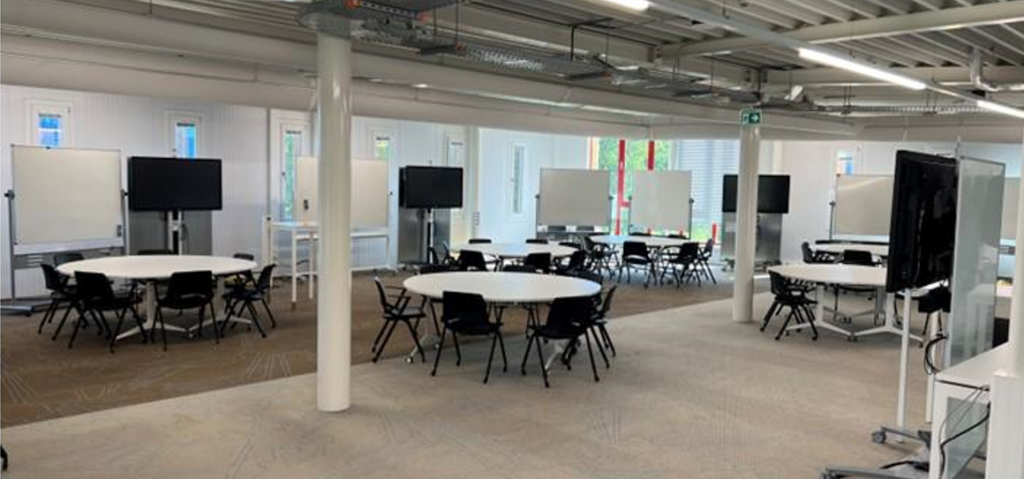
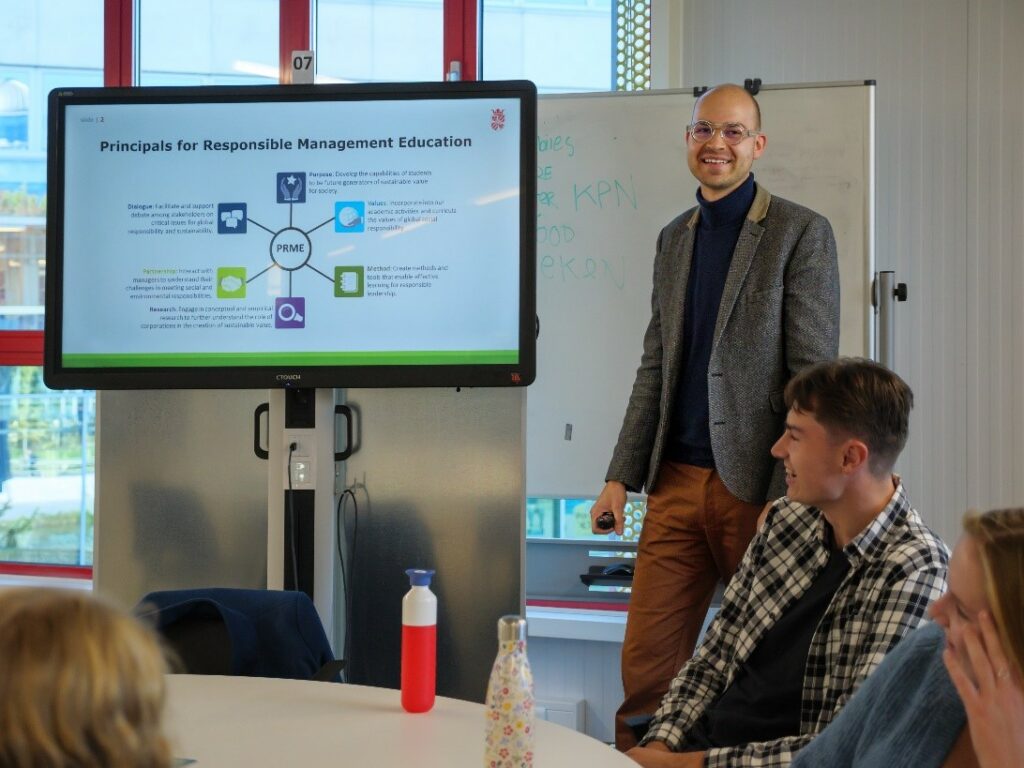
Thanks to the e-learning, we could more effectively devote in-class time to the application of the conceptual knowledge and tools students had acquired online. We used an Active Learning Classroom (ALC) environment with movable furniture, LCD screens, and whiteboards facilitating both teamwork and plenary (full) class work. The emphasis on application was particularly helpful for skill development of our pre-experience master’s students.
Our ALC sessions make learning concrete by using exercises based on actual business cases. We began with the class exploring application to a common case. Then, students applied the concepts learned to a company they have chosen to analyze for the Sustainability Summit. Starting with a common case helped student teams avoid misconceptions and empowered them to go deeper on their self-chosen cases. Because students work in teams, they are exposed to different expertise based on who pursued different recommended learning materials online, beyond the common required materials.
A student described the value:
“I really enjoyed the topics discussed and the use of the online units with the ALC sessions, it felt like a very holistic way of studying and understanding the materials. The topics and theories felt useful for future use and were interesting.”
Lesson learned: Balance common case exercises to consolidate knowledge with work on student team-specific summit-assignment case within the classroom.
3. Capstone Event with Practitioners
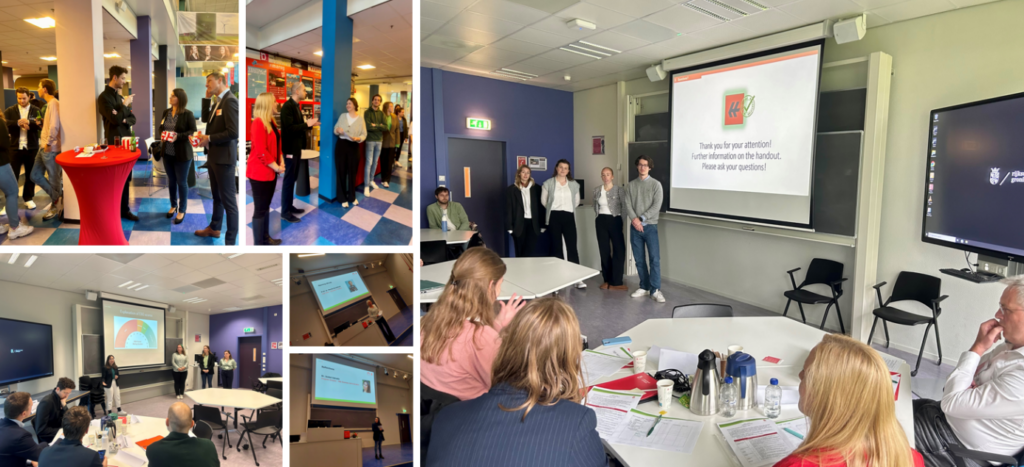
The course built up to the big summit day, which was a celebratory highlight for students. After weeks of hard work, student teams finally had the chance to show off their insights and skills. The final assignment involved presenting their diagnosis and recommendations for boosting sustainability in a real company. The day offered a sneak peek into what their future careers might hold.
“I really enjoyed the possibility of the sustainability summit to connect with alumni and to process the content in real life.” – Student
To make the setting even more realistic, we brought in alumni as “board members.” They asked tough questions and gave valuable feedback after the presentations. The simulated boardroom setting let students “walk in the shoes” of corporate sustainability change agents. Plus, they got to network with potential mentors and learn from industry professionals who are making a difference in big companies.
“The summit offered us an exceptional networking opportunity for students to engage deeply with like-minded peers from various academic backgrounds, as well as practitioners, in a relaxed and informal environment.” – Student
At the end of the day, everyone was buzzing with energy and enthusiasm, from students to alumni. In fact, our alumni were so enthusiastic that they want to get even more involved in the future.
“It was great to be a part of this inspiring event. My only piece of advice? Make use of us more. An event like this is perfect to increase collaboration between teaching and practice!” – Practitioner
Going forward we plan to involve practitioners even more.
Lesson learned: Don’t be afraid to involve practitioners and even invite them to bring their own, real-world sustainability challenges into the business school. And to practitioners: Don’t hesitate to reach out!
Success, Collaboration, and Engagement
As we continue to develop our course, we hope this blog post might:
- Be useful to other educators. We invite feedback and hope to continue to develop best practices for educating sustainability change agents with partners around the world
- Encourage practitioners to approach their local universities to solve their most pressing sustainability challenges by engaging with faculty and students
- Inspire more dialogue and sharing of teaching tools for sustainability – we are all in the same boat, so let’s pool resources and experiences for societal change
As measured by course evaluations, the Sustainability Summit Lab is meeting our goals to educate, inspire, and empower future change-makers. 70% of students completely agreed that the piloted course design should be kept while only 3% completely or partially disagreed. The course is among the best evaluated in the faculty and we have also seen marked learning and retention benefits in students. Here is what one student said:
“Before taking this course, I remember being tentative about my career direction. However, the course dispelled my doubts and encouraged me to pursue the field of sustainability. Thanks to my experiences in the course, I’ve come to realize the practicality and necessity of integrating sustainable practices in any business model.”
We also see less-direct victories and rewards. Encouraging and inspiring to us is that students from the course have begun to set out to make real change happen. Students from the course for example competed and won in the national SDG Challenge. Alumni now also work in various sustainability (consulting) functions. As educators, it fills us with joy to see the drive and achievements of our students. Teaching the “Sustainability Summit Lab” has truly been one of the most rewarding experiences for us to date.
Further Resources
Katrin and Bjorn share these course resources:
References
1 Besharov, M., & Mitzinneck, B. (2023). The multiple facets of corporate purpose: An analytical typology. Strategy Science, 8(2), 233-244.
2 Heucher, K., Alt, E., Soderstrom, S., Scully, M., & Glavas, A. (2024). Catalyzing action on social and environmental challenges: An integrative review of insider social change agents. Academy of Management Annals, 18(1), 295-347.
3 Fokkema, S. (Host). (2023). Flipped Classroom (No. 12) [Audio podcast episode]. In Teaching Talks. Spotify.
4 Mitzinneck, B. (2022). Lecturer’s blog 12: “Authentic Assessment: Experiences Teaching Sustainable Business.” University of Groningen.
5 Kapur, M., Hattie, J., Grossman, I., & Sinha, T. (2022). Fail, flip, fix, and feed–Rethinking flipped learning: A review of meta-analyses and a subsequent meta-analysis. Frontiers in Education, 7, 956416.
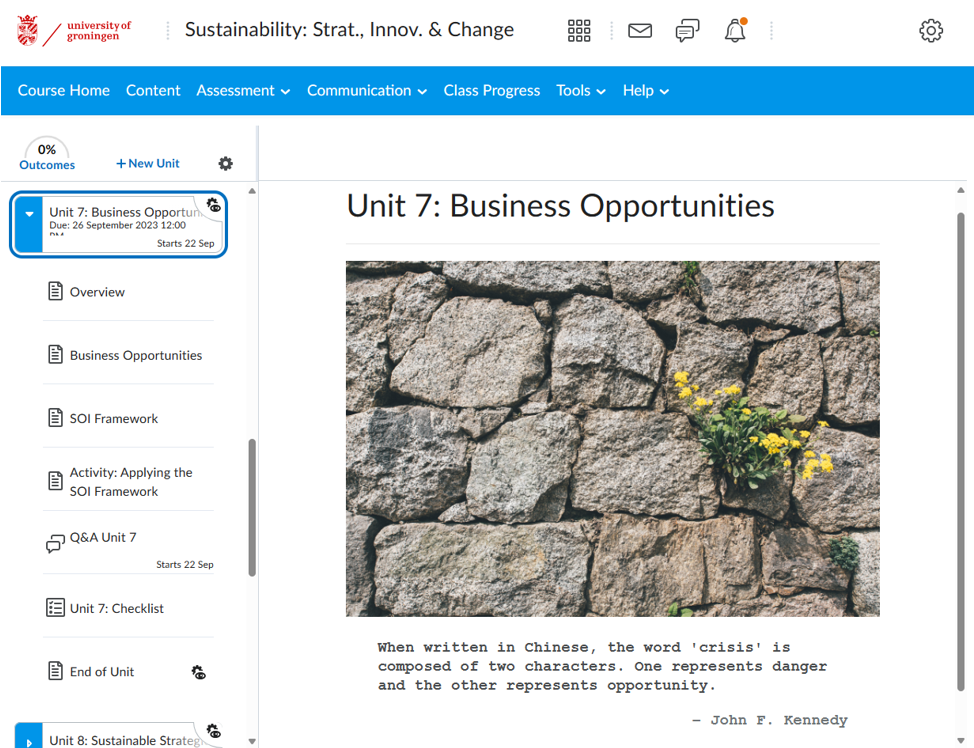
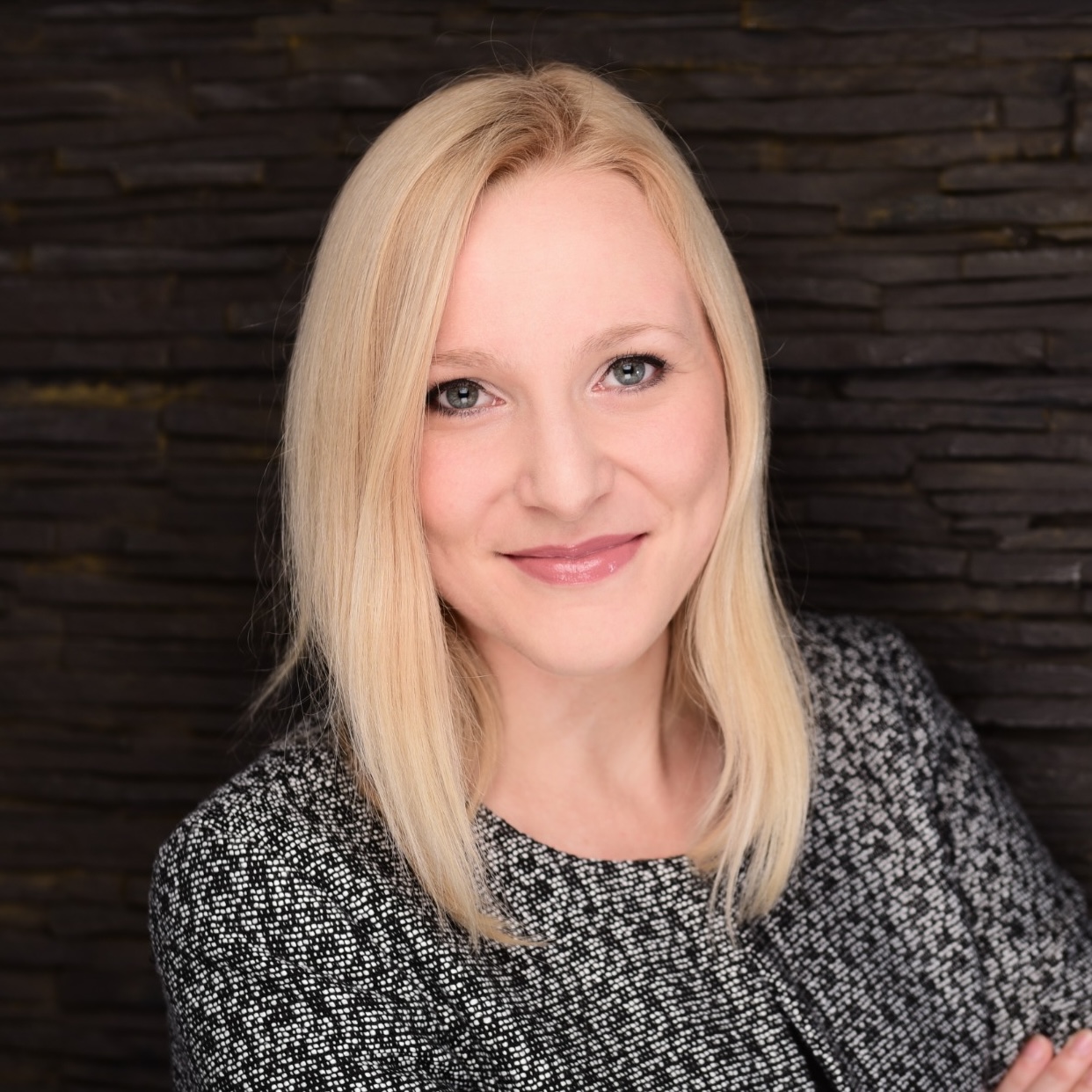

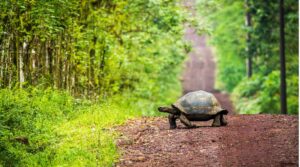

Add a Comment
This site uses User Verification plugin to reduce spam. See how your comment data is processed.This site uses User Verification plugin to reduce spam. See how your comment data is processed.